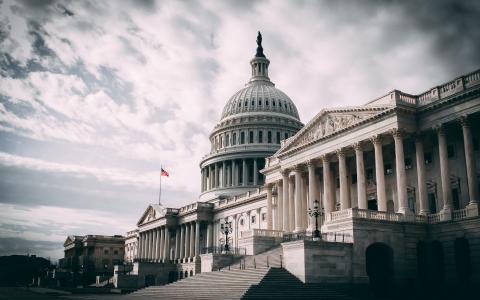
Amid fierce debate among liberal economists over the size of the next federal stimulus bill, a new analysis from the left-leaning Institute on Taxation and Economic Policy found that three of Democrats’ anti-poverty initiatives in the draft legislation—another round of direct payments and major expansions of the child tax credit and the earned income tax credit—would boost income for the poorest 20% of Americans by nearly 33% on average.
KEY FACTS
The details surrounding the next round of direct payments have divided Democrats, some of whom think the eligibility threshold should be lowered to prevent unnecessary federal spending on high earning families who don’t need relief, but draft legislation released Monday by the House Ways and Means Committee included $1,400 stimulus checks with the same income thresholds as previous payments—$75,000 for single earners and $150,000 for joint filers.
Democrats’ proposed expansion of the child tax credit would send eligible families $3,000 for children between 6 and 17 and $3,600 for children under 6, paid out over the course of 12 months, with the amount of the payments gradually phasing out as income surpasses $150,000 for joint filers, $112,500 for heads of households and $75,000 for individuals.
Democrats are also pushing for a significant (but temporary) expansion of the earned income tax credit that would nearly triple the size of the maximum benefit for childless filers from $534 to $1,502 and widen the eligibility requirements to include people under age 25 and people over age 65.
Taken together, the tax savings from those three initiatives would amount to a 32.9% annual income boost for those earning less than $21,300 per year, the ITEP found, while Americans earning between $21,300 and $39,800 would see an 11% bump.
ITEP noted that its estimates were calculated as if the proposals were in effect in 2020.
KEY BACKGROUND
Last week, both the House and the Senate voted to move forward with a joint budget resolution that will eventually allow Democrats to pass Biden’s sweeping $1.9 trillion relief agenda without any support from Republicans. That budget resolution directed House and Senate committees to begin drafting their versions of the package, which will eventually be assembled into a single bill for each chamber to vote on. ITEP’s analysis was based on draft legislation released this week by House Democrats. It’s possible the details of these proposals could change over the next few weeks: legislation under special budget rules can be passed with only a simple majority of Democrats, but that means that the final bill must be acceptable to all members of the caucus, since Democrats hold just 50 Senate seats and cannot afford to lose a single vote without gaining a Republican vote to make up the difference.
TANGENT
Not included in the ITEP’s analysis is a proposal to increase the federal minimum wage from $7.25 per hour to $15 per hour over the next five years. The House included the $15 minimum wage hike in its draft version of Biden’s relief bill, and Senate Majority Leader Chuck Schumer (D-N.Y.) said Tuesday that Democrats were consulting with the Senate parliamentarian to determine if that proposal, a major priority for Biden and progressives, could be included in the final legislation. There are still questions about whether the wage hike would qualify for the special budget reconciliation process that prevents the inclusion of provisions that aren’t related to the federal budget.
BIG NUMBER
900,000. That’s how many people the $15 per hour minimum wage plan championed by Biden and other top Democrats would lift out of poverty, the Congressional Budget Office said Monday. The CBO also noted that the initiative would cost 1.4 million jobs and add $54 billion to the cumulative federal budget deficit.
CRUCIAL QUOTE
“Raising the minimum wage, among other initiatives to address rising inequality in the U.S., is a level of fiscal policy activism not seen since President Lyndon Johnson’s ‘War on Poverty’ initiatives in the 1960s,” analysts from Morgan Stanley wrote in a research report on Tuesday.
This article originally appeared on Forbes.



